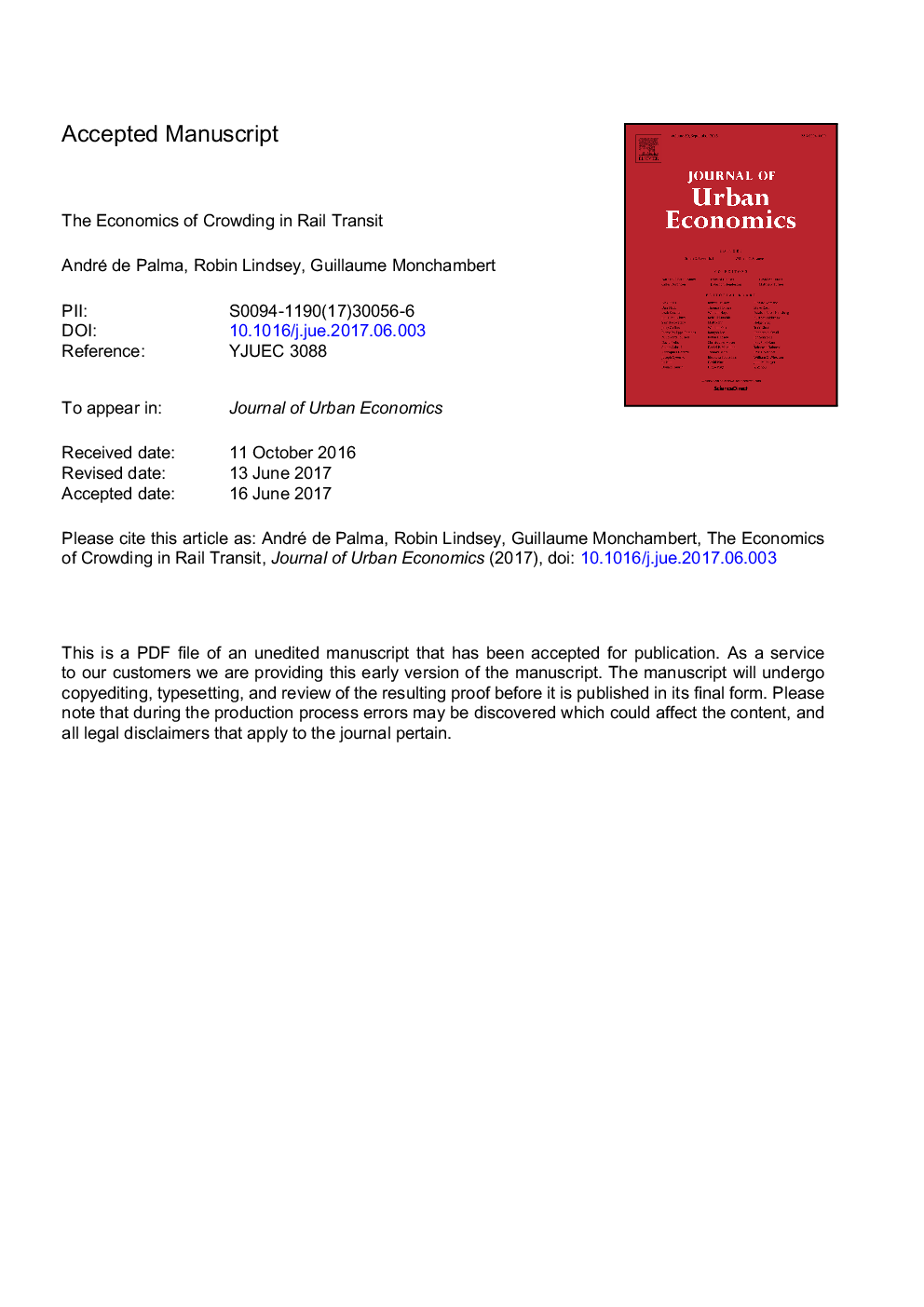| Article ID | Journal | Published Year | Pages | File Type |
|---|---|---|---|---|
| 5101925 | Journal of Urban Economics | 2017 | 49 Pages |
Abstract
We model trip-timing decisions of rail transit users who trade off crowding costs and disutility from traveling early or late. With no fare or a uniform fare, ridership is too concentrated on timely trains. Marginal-cost-pricing calls for time-dependent fares that smooth train loads and generate more revenue than an optimal uniform fare. The welfare gains from time-dependent fares are unlikely to increase as ridership grows. However, imposing time-dependent fares raises the benefits of expanding capacity by either adding trains or increasing train capacity. We illustrate these results by calibrating the model to the Paris RER A transit system.
Related Topics
Social Sciences and Humanities
Economics, Econometrics and Finance
Economics and Econometrics
Authors
André de Palma, Robin Lindsey, Guillaume Monchambert,
